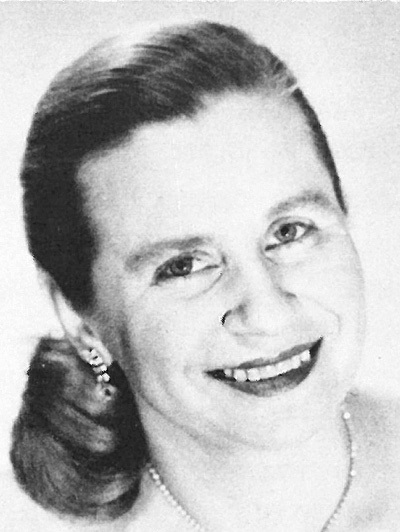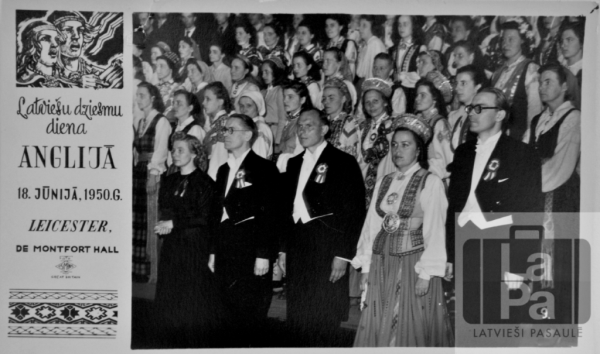Alma Skudra Kārkliņa
1917-1991
Conductor, opera singer
Alma Skudra-Karklina was born on 1 April 1917 in Gostini, near Plavinas. The Skudra family had connections to songs and music already in the previous generation - Alma's father and her brothers were singers and musicians. Her father had a rich tenor voice and a perfect pitch. From an early age she was taught to love music and to read sheet music. In her youth, Alma took part in an expedition around the Latvian countryside and collected almost 800 folk songs, for which she received a grand recognition – a state prize.
Alma was close to nature. She studied agronomy for two years; however, later, in the late 1930s, enrolled in the vocal class of the Latvian State Conservatoire. At that time she was already leading choirs and singing in ensembles in Riga and Plavinas.
The Second World War interrupted her musical education and solo career. As a refugee, she went to Oldenburg in Germany where she took an active part in the newly founded Latvian opera. The choir she founded became the official choir of the Oldenburg Latvian Opera. During her few years in Germany, Alma sang various female roles in several operas.
In the late 1940s, she met her husband Voldemars Karklins (Voldemārs Kārkliņš) and moved to England. Soon, daughter Dace was born. In 1949, she founded the mixed choir "Beverina" in Leicester. At the 1st English Latvian Song Days in London in the summer of 1949, Alma sang Jerums' harmonisation "Ej, saulīte, drīz pie Dieva" (Go, sun, swiftly to God) in a duet, and a year later, in 1950, she herself was the chief conductor at the 2nd English Song Days in Leicester.
In 1951 Skudra-Karklina and her family emigrated to Canada where she continued her career as a soloist and in 1952 founded the Hamilton mixed choir “Beverina” with 35 singers. In 1953, she was invited to be a soloist at the 1st Latvian Song Festival in Canada. In the 1950s she worked intensively on developing her voice and her solo career. She studied with the Bulgarian singing teacher Professor Zankov with great success. In 1960, she returned to homeland Latvia with her daughter Dace for a year to renew ties with relatives and friends, then returned to Canada where she continued to sing and conduct a choir in Hamilton.
The 60s and 70s were the most daring and difficult years, as for a time she simultaneously directed five choirs and ensembles in three different Canadian cities. The longest time – 25 years – was spent conducting the Hamilton Parish Choir. In Hamilton she taught singing at the Latvian school and formed the ensemble "Dzintars" and the girls' quintet "Rota" (1963). Girls in the quintet “Rota” sang for almost eight years and toured throughout North America.
In 1967, she began conducting mixed choir “Daina” in Toronto, a collaboration that lasted for 15 years. Alma was very proud of the choir's work and achievements. Under her leadership, the choir flourished and grew to over 70 singers. Many singers in the choir were young adults, so she created ensemble “Dainuvites” for them. Alma and her husband spent a lot of time in "Sidrabene", where they created several Midsummer performances and where she composed songs for the mixed choir “Daina”, the girls' ensembles “Rota” and “Dainuvītes”. After moving to Toronto, she gave private lessons and did her best to help financially with her daughter Dace's solo career.
The end of her life was hard for Skudra-Karklina, both emotionally, with the passing of her husband, and physically, as it became much harder to move. Despite the fatigue and through the pain, she continued to do work after retirement. She passed away on 10 March 1991 in Toronto. On the evening of March 12, approximately 200 Latvian cultural workers and friends – choirs, ensembles, and admirers of her talent – said goodbye to her at Rosars Funeral Home.
Information sources
Maksiņa, V. (1991, 23. marts). Atvadvārdi Almai Skudrai-Kārkliņai. Latvija Amerikā, 12, 10., 20. Latvija Amerikā, Nr.12 (23.03.1991) (periodika.lv)




